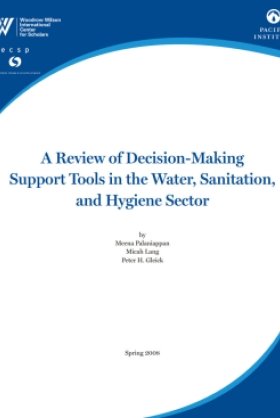A Review of Decision-Making Support Tools in the Water, Sanitation, and Hygiene Sector


In developing countries, water, sanitation, and hygiene (WASH) practitioners need a way to choose among the numerous available options for securing safe water and sanitation. Effectively addressing community needs requires that technologies or approaches be economically, ecologically, and socially appropriate and sustainable. Decision-making support tools help address this need, guiding practitioners to the most appropriate water and sanitation solutions.
The authors of this analysis conducted an assessment of 120 existing support resources, including books, manuals, and websites. Additionally, we performed an in-depth evaluation of the 18 support resources that most closely resembled decision-making tools. This analysis indicated that existing support resources fail to adequately serve WASH practitioners. Most commonly missing among the resources evaluated were: an effective user interface; consideration of social implications; regional specificity; information on costs and financing; hygiene approaches; project replicability; and evaluation and monitoring.
Emerging from this analysis is a clearer picture of the necessary characteristics of an effective decision-making support tool. The ideal tool would include all elements necessary to implement a water, sanitation, and hygiene project; serve multiple languages; be developed in both web and print form; and include success stories. The tool would be complimented by a comprehensive and ongoing dissemination and support system, including regional workshops; on-call technical support teams; and long-term support for on-the-ground experts, including financing, community, and technical support. A decision-making support tool that includes these elements, particularly the critical support system, would best be able to ensure the selection and success of appropriate solutions. It is clear that developing this ideal decision-making support tool will be a significant challenge and require the concerted effort of numerous stakeholders.
It is our hope that this report will lead to the development of a decision-making support tool in the WASH sector that will serve practitioners seeking the best options to meet the water, sanitation, and hygiene needs of their communities. We also seek to build a foundation to develop the ongoing support system that will be required to ensure that technologies and approaches in the WASH sector are successfully implemented and maintained on the ground.
Authors


Environmental Change and Security Program
The Environmental Change and Security Program (ECSP) explores the connections between environmental change, health, and population dynamics and their links to conflict, human insecurity, and foreign policy. Read more




